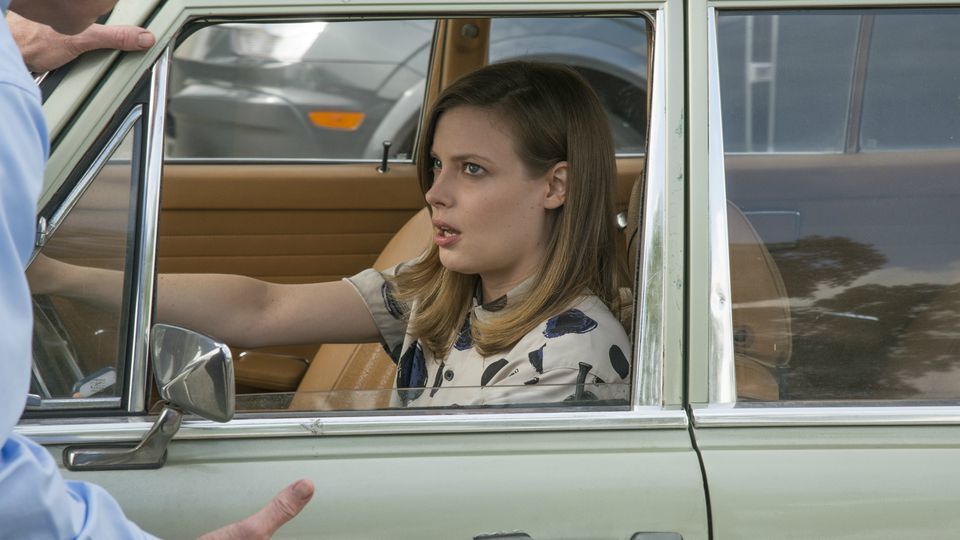When Girls premiered in 2012, it sparked a five-year conversation about the way young women are presented and judged on screen. The think pieces and hot takes flowed forth, and among the deluge a new trope emerged: the female slacker. At the time, Lena Dunham served as an early poster girl, although the overachieving 20-something was hardly a picture of creative apathy. That year the Guardian reflected, “Dunham’s onscreen unmade up face, or slightly dimply thighs, shouldn’t seem extraordinary, but they do: they’re a reminder that girl slackerdom can, in fact, take on a radical quality.”
Whether or not a woman wearing flat shoes is radical is of course subjective, but there was no doubt something had shifted. In the years since, we saw a new flavor of female comedy emerge as Broad City, Amy Schumer, and Dee Reynolds (okay, the first lady of It’s Always Sunny in Philadelphia predates Hannah Horvath by seven years) stepped forth, all representing different levels of hedonistic abandonment. Whether charming or vile, they all aggressively rejected the familiar tropes of women on TV and in movies. They aren’t prudes, nags, virgins, or saints. They’re more likely to eat a burrito in bed than make love with their bra on.
But over the years, the archetype suffered a familiar fate: it became overused and tired. Cracks emerged (essentially: you could only be a fun-loving burn-out if you were rich and white) and it was soon revealed to be as hollow as other buzzy favorites like the much-maligned Manic Pixie Dream Girl or Sassy Best Friend.
With the end of Girls this month, it’s understandably tempting to lift the (unwashed) covers of this caricature and see what she’s been up to since the Twitter mentions dried up. When we left her, she was an uneasy picture of privilege — buffered from the fiscal and career frenzy that marked other people’s lives — born lucky enough to possess the physical and cultural currency to do nothing and still emerge with her disheveled charm intact. As it turns out, in 2017, something has changed.
READ: exploring pop culture’s unlikely new obsession with sobriety
Five years ago, the female slacker was a cousin of her male counterpart: the Judd Apatow creation who does little more than smoke weed and hump Alison Brie. But today’s exploration of female disengagement is a sensitive presentation of mental health, sex, anxiety, and the weight of frayed expectations.
No one represents this quite as glaringly as Mickey from Love. Played with a frantic, worrying energy by Gillian Jacobs, she is a woman who, yes, smokes a lot of weed and fucks around a lot. But her motives are less delusions of grandeur, and more the mounting expectation of what actually having your shit together looks like. Written 10 years ago, she would be a dreamer who doesn’t want to settle down. Today, she’s a self-destructive narcissist whose lack of traction is a response to addiction and crippling anxieties.
Even her critics, and there are many, recognize her as the personification of being expected to want it all. As any fourth-wave feminist would lament, opportunities available to women may have swelled over the last half century, but they’ve delivered new bittersweet pressures. You can have it all, and you’re expected to. You have to take on every advantage usually available to men, without giving up any of the tenderness expected of you as a woman. It’s understandable why Mickey just wants to hot box in her car in peace.
It’s a criticism of female tropes and dreams we’ve also seen in the current wave of pregnancy-horror. Films like Prevenge and Antibirth resist images of the perfect mother — women suddenly endowed with an almost biblical level of purpose — by exploring what we’re forced to give up when nature decides our period of biological selfishness is over. When Antibirth’s Lou, played by Natasha Lyonne, finds herself pregnant and unable to enjoy the burn-out life she enjoys, her response isn’t simply selfish, it’s understandable. When asked by Vulture if the film was an allegory about pregnancy and abortion, Lyonne responded: “I think it is sort of commenting on women’s role in society, and how we perceive their value.”
While not directly a comment on slackerdom, Michaela Coel’s Chewing Gum has been compared to Girls for its shared dedication to showing the awkward realities of sex. Emerging from the shadow of her evangelical Christian family, Tracey has few concerns in life beyond losing her virginity and transforming herself into a sexual creature. Again, a decade ago it could have been a British answer to American Pie, but instead has come to be lauded for its examination of how we are introduced to sex.
Tracey has gleaned her sex ed from friends, the internet, and porn — three major sources for most young women. So while her sexual ventures are joyful and lacking any shadow of shame, they’re also largely shaped by misinformation, fed to her by a world that has tried to create an artificial reality of sex, relationships, and intimacy. As a result, a show about a 24-year-old living at home and working in a corner store exists as a luminous mirror to how we teach women to understand their own bodies.
Usually tropes flatten over time — the hysterical woman, sexless friend, evil step mother — but in a strange twist, the female slacker has not only broadened, but more importantly, darkened. Writers have resisted the urge to use her as a slice of escapism, rather exploring why it is we retreat, give up, withdraw, or dismiss. It’s not just about taking painful realities and spinning them into gags, but rather allowing existing jokes to seed real conversations around our own narcissism, fears, and frustrations. Maybe sitting in bed eating Doritos is a powerful social statement after all?
Credits
Text Wendy Syfret
Still Love
